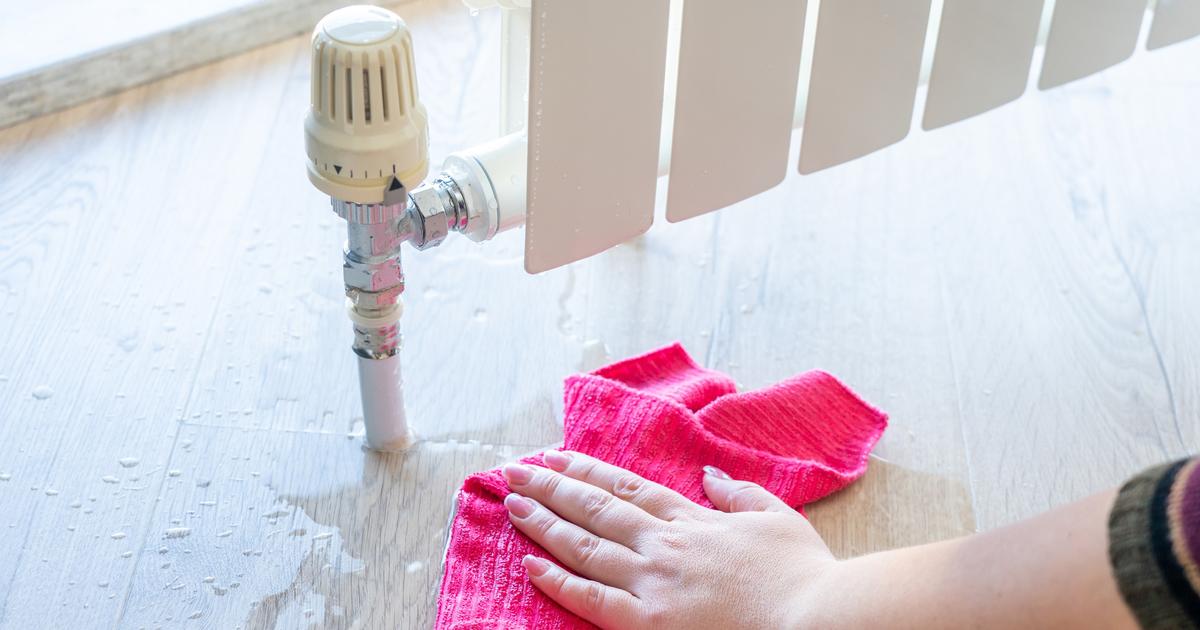Enlarge image
Photo: Sven Hoppe / dpa
When I took part in the first COP1 climate summit in Berlin 26 years ago, the greenhouse gas concentration in the atmosphere was just under 360ppm, today it is 420. For millennia it was below 300. The apocalypse was clearly on the wall at the climate summit in Glasgow this week see.
Can we still save something and how can you be part of it all?
I want to go out of such a climate week with a clear personal plan.
Yes we can save something.
Without optimism, there is no plan in difficult times.
There are actually a few simple steps in the right direction - and a few more complex ones.
And all the steps are usually worthwhile not only for the climate, but also individually, for life and your wallet.
Much more would probably be possible if it were politically wanted.
The more business-oriented »Economist« calculates that the number of photovoltaics installed around the world will currently double in four years.
With wind energy, that takes six years.
Even latecomer India has increased its sustainable power capacity sixfold in the past five years.
By 2030, half of India's electricity should come from renewable energy sources, Prime Minister Narendra Modi promised in Glasgow.
It is important to the “Economist” to say that capitalism does not prevent climate protection.
On the contrary: it makes climate protection possible.
On punishment for his downfall.
Let's see what the coming federal government will make possible.
So what can we do?
We can use less fossil fuel, use energy more efficiently and use the large amount of money in our accounts sensibly and profitably.
Saving energy in the household
In the household it's about electricity and heating and then of course it's about the tiresome topic of cars.
In fact, in recent years we have reduced private electricity consumption in German households to the level of the early 1990s.
When it comes to saving electricity, however, an average of 320 euros a year is still available for the household budget, says the non-profit organization "CO₂ Online".
It collects data from hundreds of thousands of households.
Tips can be found here.
This ranges from energy-saving lamps and energy-saving washing machines to valuable everyday tips such as switching off the hot water circulation.
At the same time, we have increased the proportion of renewable electricity through wind turbines and solar modules, to over 100 percent of consumption on sunny days.
Renewable energies saved 159 million tons of CO2 emissions (equivalents) in electricity in Germany in 2019 alone.
Enlarge image
Columnist Tenhagen (right) with the then Environment Minister Angela Merkel at the first climate summit in 1995
Photo: private
Almost everyone can save. In order to invest, you need a few requirements. A suitable roof of your own or a rented one, for example. With a system for 10,000 euros, you can generate a lot of solar power there. For 400 euros you can even generate your own solar power with a small system on your own balcony. Individual local courts like the one in Stuttgart have now ruled that their landlord must approve this (AZ 37 C 2283/20). And there are portals with which you can find the right provider for your solar roof.
If you can then also charge your car with solar electricity and use a battery (power storage) to store the electricity you have generated yourself for heating, the whole thing will be a well-rounded affair.
70 percent self-sufficiency is possible.
Should Elon Musk with his Tesla factory soon offer hundreds of thousands of battery storage systems for self-consumption more cheaply, it will also be economically attractive for more households.
Our own photovoltaic system is also a good investment, because in the future we will need significantly more electricity for our individual heat pumps for heating and for the electric car in the countryside.
Speaking of the future.
We're pretty good at electricity.
What we have not yet achieved on a broad scale is to get heating energy CO2-free and of course to solve the transport issue.
Let's start with traffic: In fact, emissions from traffic in Germany also fell by 2009.
Since then, CSU politicians have been transport ministers and emissions from transport rose again by 2019.
Also because politics has allowed us to be shamelessly outsmarted by the auto industry when it comes to fuel consumption and pollutant emissions.
Drive better - or switch to an electric car
The same solution patterns apply to traffic.
A simple solution even comes from the ADAC.
In a famous video from Bayerischer Rundfunk, the ADAC engineer shows how a driver can reduce his fuel consumption on the way from the surrounding area to work in Munich with the same car by a quarter only by adapting his driving style - and not being slower.
Of course, you need even less fuel if public transport is expanded in such a way that a private car is no longer necessary in cities and an electric car does its fuel-saving service in the country.
Such an e-car can now be obtained cheaply.
240,000 e-cars have been registered in Germany so far this year.
Two colleagues in my editorial office already drive electric.
The prices are falling, the current funding is generous at 9,000 euros.
The world's largest e-car manufacturer China and European low-wage manufacturers such as Romania are entering the German market.
And a very inexpensive electric car, the Dacia Spring, costs just 11,000 euros after the subsidy has been deducted.
If you don't yet trust the idea for the next new car - keyword: too few charging stations, insufficiently developed charging technology - just lease or borrow the first electric car.
Less consumption when heating
We come to the somewhat more complex steps in the heating area.
Here, too, you can first of all reduce your requirements with simple means and save a lot of money - through correct ventilation and the correct setting of the heating and radiators, for example.
And there is much more to it. To do this, however, you have to familiarize yourself with the technology, get good advice and take your own money into your own hands - in addition to the considerable government funding. We are currently modernizing only one percent of the apartments in Germany each year. If we want to achieve the climate targets already agreed by the last government, it would have to be three percent. Money is available for your modernization, whoever throws out his oil heating and installs a modern heating system with a heat pump, for example, receives 45 percent of the costs for throwing out and installing. If you do not have your own funds, you can take out a KfW loan from your house bank and only pay back 55 percent of the sum.
The situation here is more difficult for half of the people who rent in Germany - especially the younger ones.
They cannot make such decisions about the right heating themselves and their landlords currently have little direct economic interest in such a modernization.
The heating costs can simply be passed on to the rent.
And whether many tenants move in the current tense housing situation because of the heating, as the FDP General Secretary Volker Wissing has in mind, I have my doubts.
Invest money sustainably
Which brings us to the area that many people think of first, but which is also not that easy.
Toad migration was what tough ecos used to call it.
Can't we use part of our 2700 billion euros, which are in daily accounts in this country and for which we have to pay custody fees in part, to banks that have hitherto been inactive, for the ecological restructuring?
We can, and probably can, very profitably in the long term.
The simplest solution is to use more sustainable index funds.
My colleagues at »Finanztip« recommend two UBS funds that replicate a sustainable selection from the MSCI World Socially Responsible Index (SRI) and a fund from IShares that replicates the same with a sustainable selection from a global index (Dow Jones Sustainability Index World Enlarged).
Such funds significantly reduce the environmental cost of your equity investment. In technical jargon, this is called economic emission intensity and measures the reduction in CO2 emissions per billion euros of gross value added. And this has already been done in the past without any loss of return. Seven to eight percent annual return has been an average over the past few decades if you have held such a fund for 15 years. The annual costs were 0.2 percent. With an annual return of seven percent, 50,000 euros become 138,000 euros after 15 years, almost 4,000 euros are deducted from the return due to the costs. And they no longer had to fear losses on such a long distance.
If you want, you can of course also choose a deep green managed eco fund for your own system.
In recent years, returns from funds such as Ökovision Classic from Ökoworld or Erste WWF Stock Environment from Erste Bank have been promising.
The funds have been around for more than 20 years.
However, you still have to regularly check the success of your fund management.
If you assume that your fund managers are above average and actually generate an average of eight percent a year, around two percent will be costs.
The management costs you here 38,000 of the 158,000 euros earned.
To do this, you should regularly compare your own ecological and financial success with that of competing products and, if in doubt, switch from one to another.
more on the subject
Life cycle assessment: Are electric cars really better for the climate than petrol and diesel? By Simon Hage
New rules and more funding: How to make your house climate-friendly - and the state pays By Henning Jauernig and Jens Radü
Do you have an idea now?
Approach all three areas and benefit from climate protection.
Adjust your energy consumption at home and in the car.
Do what is obvious and save money.
If you have your own property, plan the ecological renovation instead of letting the money go moldy in the overnight account.
There is plenty of government funding and cheap loans for the final step.
If you are a landlord, include your tenants.
If you are a tenant, speak to your landlady.
Climate protection is a global task.
The best way to act globally responsibly is with your money.
Your own household, your own car, your own property, everything stays in Germany.
For this reason, you should stay on the move globally when investing.
If you have little time and leisure, simply with a more ecological index fund, if you have more time and a high level of personal interest, also in actively managed funds or even individual stocks - but please only as an addition, because individual stocks are generally much more risky than funds.










